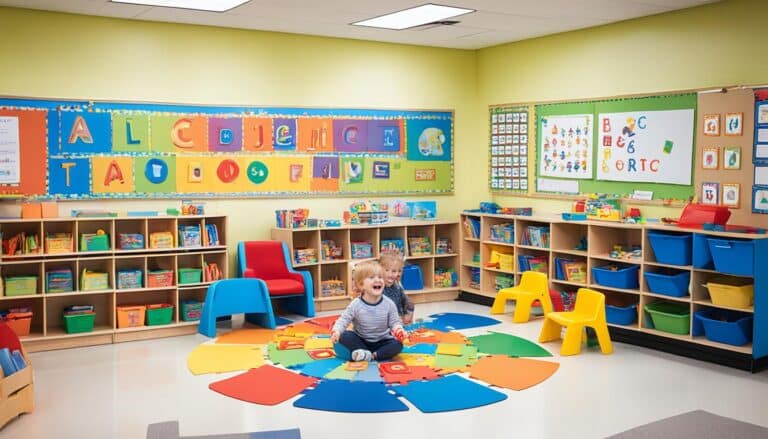Preparing for the Transition to Parenthood
Preparing for parenthood is an exciting and transformative experience. As I eagerly await the arrival of my little one, I understand the importance of taking proactive steps to ensure a smooth transition into this new chapter of my life. From creating a supportive network to educating myself on various aspects of parenting, there are numerous ways in which I can prepare myself for the joys and challenges of parenthood.
Key Takeaways:
- Creating a supportive network of family, friends, and parenting communities is crucial in navigating the transition to parenthood.
- Educating myself through parenting classes and childbirth education courses will boost my confidence and equip me with valuable knowledge and skills.
- Organizing my finances and home, including budgeting for baby expenses and baby-proofing my living space, is essential for a smooth transition.
Creating a Supportive Network
One crucial aspect of preparing for the transition to parenthood is creating a supportive network around you. Parenthood can be both exciting and challenging, and having a support network in place can make all the difference. When you become a parent, it’s essential to have family and friends by your side who can offer advice, emotional support, and practical help.
Joining parenting communities or groups can also provide a valuable network of individuals who are going through similar experiences. These communities often offer forums, online groups, or in-person meetups where you can connect with other parents and share your journey. Being a part of a parenting community can help you feel less alone and provide a space to seek advice, share experiences, and celebrate the joys of parenthood.
Surrounding yourself with a supportive community that understands the challenges and joys of parenthood can make the transition smoother and less overwhelming. Your support network can provide a sense of belonging, reassurance, and empathy as you navigate the ups and downs of parenting.
“Having a strong support system is crucial when becoming a parent. It’s comforting to know that there are people who understand and can offer guidance when you need it the most.”
Whether it’s your own family members, close friends, or fellow parents in your community, building a support network is essential for your well-being as you transition into parenthood.
Benefits of a Supportive Network:
- Emotional support during challenging times
- Advice and guidance from experienced parents
- Opportunities to share experiences and learn from others
- Practical help with tasks such as babysitting, meal preparation, or running errands
- A sense of belonging and community
Remember, parenting is a journey best traveled with others by your side. Reach out to your family, friends, and parenting communities to create a strong support network that will provide you with the encouragement and assistance you need as you embark on this new chapter of your life.
https://www.youtube.com/watch?v=fBfhxNjYMV4
| Ways to Build a Support Network | Benefits |
|---|---|
| Join local parenting groups | Opportunity to connect with parents in your area and build friendships |
| Attend parenting classes or workshops | Educational resources and networking with other expectant parents |
| Reach out to family and friends | Access to trusted individuals who can offer support and guidance |
| Utilize online parenting forums | Virtual support network available 24/7 for advice and camaraderie |
| Participate in playgroups or playdates | Opportunity for social interaction for both you and your child |
Educating Yourself
Another important step in preparing for the transition to parenthood is educating yourself on various aspects of parenting. By attending parenting classes or childbirth education courses, you can gain valuable knowledge and skills to navigate the early stages of parenting with confidence.
Parenting classes provide a structured learning environment where you can learn about a wide range of topics related to raising a child. These classes often cover essential subjects such as labor and delivery, infant care, breastfeeding, and postpartum recovery. By participating in these classes, you will gain practical insights and expert advice from professionals in the field.
Childbirth education courses focus specifically on the process of labor and delivery, helping you understand the stages, pain management techniques, and medical interventions that may be involved. These courses not only equip you with knowledge but also empower you to make informed decisions and actively participate in your birthing experience.

Benefits of Parenting Classes and Childbirth Education
- Gain practical knowledge and skills for infant care
- Learn about different labor and delivery options
- Understand postpartum recovery and self-care
- Receive expert advice and guidance from professionals
- Connect with other expectant parents and build a support network
Attending parenting classes and childbirth education courses will not only increase your confidence as you approach parenthood but also provide you with the tools and resources you need to care for your baby effectively. These educational opportunities are invaluable in preparing you for the journey ahead.
Whether you choose to attend classes in person or opt for online courses, investing in your education as a parent is a worthwhile endeavor that will benefit both you and your child.
| Topic | Parenting Classes | Childbirth Education |
|---|---|---|
| Labor and Delivery | ✓ | ✓ |
| Infant Care | ✓ | |
| Breastfeeding | ✓ | |
| Postpartum Recovery | ✓ |
Organizing Your Finances and Home
As you prepare for the arrival of your baby, it’s crucial to take steps to organize your finances and home. Creating a solid financial plan ensures that you are well-prepared for the additional expenses that come with having a baby. Equally important is making your home a safe and secure environment for your little one.
Financial Planning for Baby
When it comes to financial planning for your baby, it’s essential to create a realistic budget that accounts for the various expenses you’ll incur. Consider the following:
- Diapers, formula, and baby food
- Medical bills and insurance
- Nursery furniture and supplies
- Childcare costs
- Education savings
By carefully estimating these expenses and incorporating them into your budget, you can ensure that you are financially prepared for the arrival of your little one. Additionally, consider setting up a separate savings account specifically dedicated to your child’s future needs, such as education or unexpected expenses.
Baby-Proofing Your Home
Ensuring a safe environment for your baby is of utmost importance. Take the necessary steps to baby-proof your home and prevent potential accidents:
- Install safety gates at the top and bottom of stairs to prevent falls.
- Cover electrical outlets with safety plugs or outlet covers.
- Secure heavy furniture such as bookshelves and TVs to the wall to prevent tipping.
- Put locks on cabinets and drawers containing hazardous materials or breakable items.
- Keep choking hazards out of reach, such as small toys, coins, and small objects.
Remember to regularly inspect your home for any potential hazards as your baby grows and becomes more mobile.
By taking the time to organize your finances and baby-proof your home, you can create a stable and secure foundation for your growing family. It’s important to remember that financial planning and home safety are ongoing processes that may require adjustments as your baby’s needs and development change.

| Expense | Estimated Monthly Cost |
|---|---|
| Diapers | $50 |
| Formula | $100 |
| Medical Bills | $150 |
| Nursery Furniture | $200 |
| Childcare | $500 |
| Education Savings | $100 |
Conclusion
In conclusion, preparing for the transition to parenthood requires careful planning, education, and support from your network. By creating a supportive network of family and friends and joining parenting communities, you can gain invaluable advice, emotional support, and practical help throughout your journey.
Furthermore, educating yourself on parenting-related topics by attending classes or courses will empower you with the knowledge and skills needed to navigate the early stages of parenthood confidently. From learning about labor and delivery to understanding infant care and breastfeeding, education will be a valuable resource on your parenting journey.
Alongside emotional support and education, it’s essential to organize your finances and home for a smooth transition. Budgeting for your baby’s needs and setting up a savings account will help ensure financial stability. Additionally, baby-proofing your home by installing safety gates, covering electrical outlets, and securing furniture will create a safe environment for your little one to explore.
While the transition to parenthood may bring about some challenges, with careful preparation and support, you’ll be well-equipped to embrace the joys and responsibilities of parenthood. By taking these necessary steps, you can lay the foundation for a smooth and fulfilling journey into your new family life.
FAQ
What should I do to prepare for the transition to parenthood?
To prepare for the transition to parenthood, it is essential to create a supportive network, educate yourself on parenting topics, and organize your finances and home.
How can I create a supportive network?
You can create a supportive network by reaching out to family and friends for advice and emotional support. Joining parenting communities or groups can also provide a valuable network of individuals who are going through similar experiences.
What steps can I take to educate myself about parenting?
Consider attending parenting classes or childbirth education courses to learn about topics such as labor and delivery, infant care, breastfeeding, and postpartum recovery. Education will increase your confidence and provide you with valuable knowledge and skills to navigate the early stages of parenting.
How should I organize my finances and home for the arrival of my baby?
It’s crucial to create a budget that includes additional expenses associated with having a baby, such as diapers, formula, and medical bills. Consider setting up a savings account specifically for your child’s future needs. Additionally, baby-proofing your home by installing safety gates, covering electrical outlets, and securing furniture is essential to ensure a safe environment for your little one.






